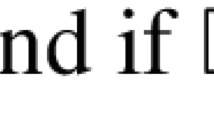Abstract
The paper argues, that a direct formalization of the way common sense thinks about the numerical identity of enduring entities, requires that traditional predicate logic is developed. If everyday language mirrors the world, then persons, organisms, organs, cells, and ordinary material things can lose some parts but nonetheless remain numerically exactly the same entity. In order to formalize this view, two new logical operators are introduced; and they bring with them some non-standard syntax. One of the operators is called ‘the instantiation operator’; it is needed because the existential quantifier and its traditional relatives cannot do the job required. The other operator is called ‘the form-on-matter operator’, and it allows an individual (an instance of a form) to stay the same even though some of its parts (its constituting matter) is taken away from it. Also, a certain kind of predicates, called ‘nature terms’, is needed in order to represent what gives a particular its kind of identity. Both the operators and the nature terms introduced can be used in constructions of formal languages and formal systems, but no such constructions are made in the paper. The paper is structured as a comment on the philosophical problem called ‘the problem of the cats Tibbles and Tib’.
Similar content being viewed by others
References
Johansson I. (2006a). Identity puzzles and supervenient identities. Metaphysica. International Journal for Ontology and Metaphysics 7(1): 7–33
Johansson, I. (2006b). Inference rules, emergent wholes, and supervenient properties. TripleC—open access online Journal for the Foundations of Information Science, 4(2), 127–135. Retrieved February 5, 2007, from http://triplec.uti.at/
Lowe E.J. (1989). Kinds of being. A study of individuation, identity and the logic of sortal terms. Oxford, Basil Blackwell
Lowe E.J. (2002). Survey of metaphysics. Oxford, Oxford University Press
Lowe E.J. (2006). The four-category ontology. Oxford, Oxford University Press
McCarthy, J. (1990). Artificial intelligence, logic and formalizing common sense. In R. Thomason (Ed.), Philosophical logic and artificial intelligence. Dordrecht: Kluwer Academic 1989. Retrieved February 5, 2007, from http://www.formal.stanford.edu/jmc/
Smith, B. (2005). Against fantology. In M. E. Reicher & J. C. Marek (Eds.), Experience and analysis (pp. 153–170). Wien: öbvɛtpht; http://ontology.buffalo.edu/bfo/Against_Fantology.pdf
Varzi, A.C. (1998). Basic problems of mereotopology. In N. Guarino (Ed.), Formal ontology in information systems (pp. 29–38). Amsterdam: IOS Press.
Whitehead A.N., Russell B. (1962). Principia mathematica to *56. Cambridge, Cambridge University Press
Author information
Authors and Affiliations
Corresponding author
Rights and permissions
About this article
Cite this article
Johansson, I. Formalizing common sense: an operator-based approach to the Tibbles–Tib problem. Synthese 163, 217–225 (2008). https://doi.org/10.1007/s11229-007-9199-0
Received:
Accepted:
Published:
Issue Date:
DOI: https://doi.org/10.1007/s11229-007-9199-0



